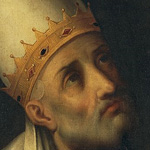
Pope Nicholas IV was the 191st Pope and the first member of the order of Saint Clare, to become a leader of the Catholic Church. He was considered by people to be peace-loving and devoted Pope. Here are some facts about Pope Nicholas IV and knowledge about his life and papacy.
Life before the papacy
He came from humble beginnings and joined the Franciscan order when he was very young. He later became a Franciscan friar and was elected to be the order’s high-ranking minister for Dalmatia.
This was done during the Franciscan chapter that was held at Pisa in 1272. In the same year, he was sent as a papal delegate to Constantinople, a Greek territory whose ruler was named Emperor Micheal Palaiologos. The delegates were sent to invite the Greeks to participate in the upcoming assembly of Lyon.
After two years, he took the place of St. Bonaventura, the order of Saint Clare’s Minister General. After his death during a chapter at Lyons, it was the fifth chapter ever held on 1274 July 15. He was elected while he was absent as a delegate in the Greek embassy in Constantinople. In 1278 Pope Nicholas III made him a cardinal.
However, he was still allowed to remain minister General of the order of Saint Clare until the next chapter. In 1281 Pope Martin IV promoted him to Cardinal Bishop of Palestine.
Papal Conclave
When Pope Honorius IV died on April 3, 1287, the conference was held at the papal palace where Pope Honorius died. All of which was under the constitution implemented by Pope Gregory X.
However, because of the sudden death of six electors, the cause was fever. The next year they assembled again, with seven electors including Jerome. On 1288 February, the surviving electors chose Jerome Masci as the 191st pope. He accepted the offer to become the pope on February 22. He wanted the name Nicholas to remember Pope Nicholas III who had made him a cardinal.
New Cardinals
After the loss of six cardinals during the election process, Pope Nicholas decided to fill the vacancies as his priority. However, he didn’t exceed the previous number recorded, nor did he reach it. Pope Nicholas named six cardinals to replace them on May 16, 1288. He also made a law that grants cardinals the authority to acquire income from the holy see and share of the financial management.
Other Actions
During Nicholas IV’s time as pope, he allowed the university of King Denis to be granted Stadium general in Portugal. In 1291 Nicholas IV gained enthusiasm for crusades after the loss of Acre.
Quick facts about Pope Nicholas IV
- He was born in 1227 on September 30, in a place called Lisciano in the kingdom of Naples. This means that he was 61 years of age when he was elected pope.
- Since birth, the names he was given are Girolamo Masci, although people sometimes referred to him as Jerome Masci.
- He died on April 4, 1292, and was buried under the law.
- Pope Nicholas IV died in Rome and was buried inside the Papal palace that he built. It is not confirmed by historians how he died.
- His papacy began in 1288, on February 22, when he agreed to take the position.
- Pope Nicholas remained pope until the time of his death in 1292.
- Two years after his death, St. Celestine V was elected as his successor.
Interesting facts about Pope Nicholas
- He was the first Franciscan pope, and also the first pope to be a cardinal and Franciscan Minister General.
- He met a Chinese man by the name Rabban Bar Sauma in 1288, and he was a member of the Persian church.
- He sent missionaries together with Franciscan John of Corvino to work together with Bulgarians, Mongols, Ethiopians, Tatars, and Chinese.
- He concluded a treaty involving King Alfonso III and King Philip IV to expel James from Sicily.
- He reintroduced the enthusiasm of crusades after the loss of Acre.
- He implemented the significant constitution that paved the way for the college of cardinals to become independent.